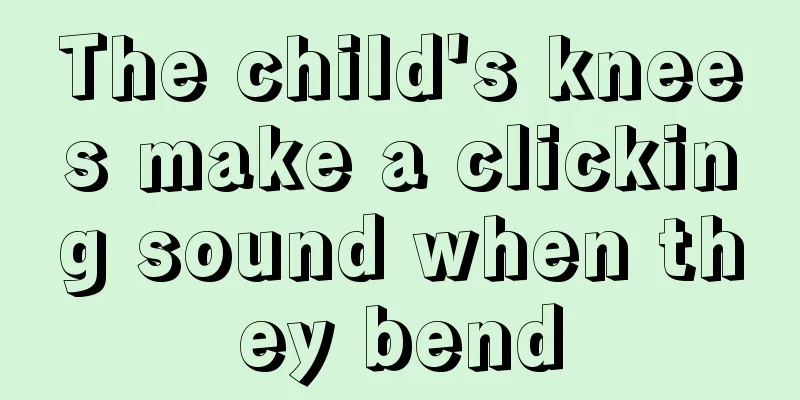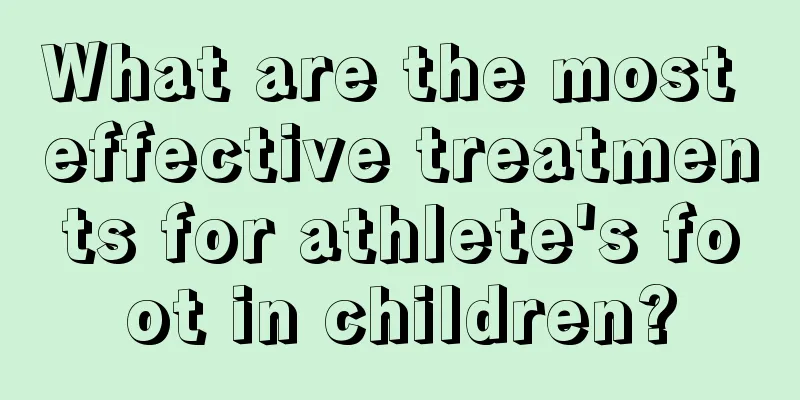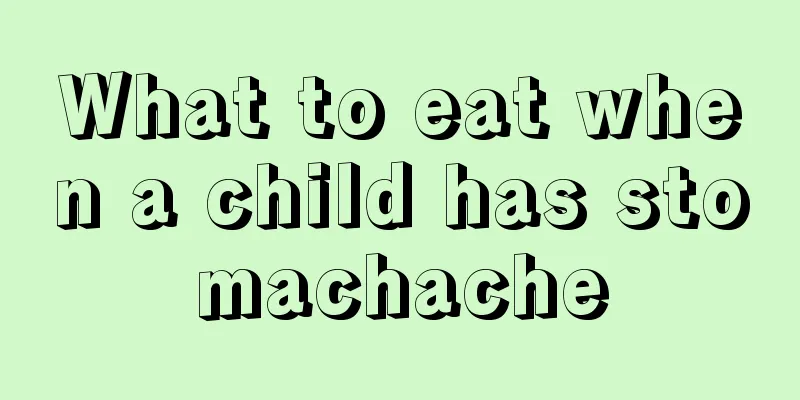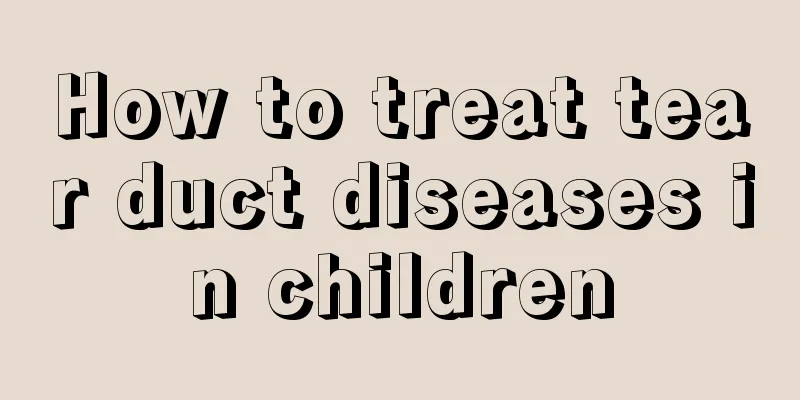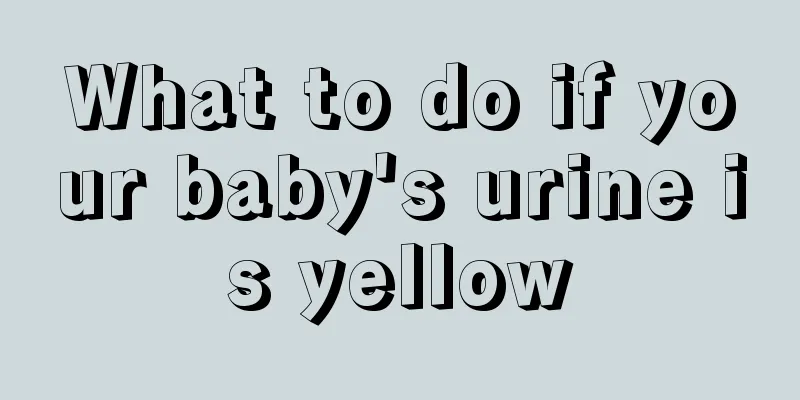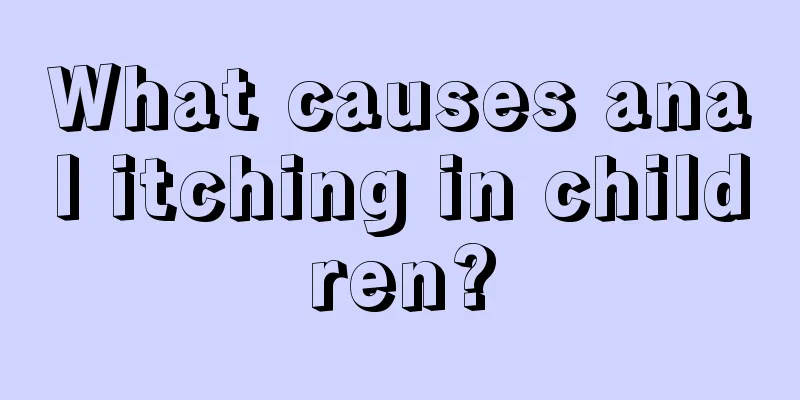What to do if your eight-month-old baby has a fever
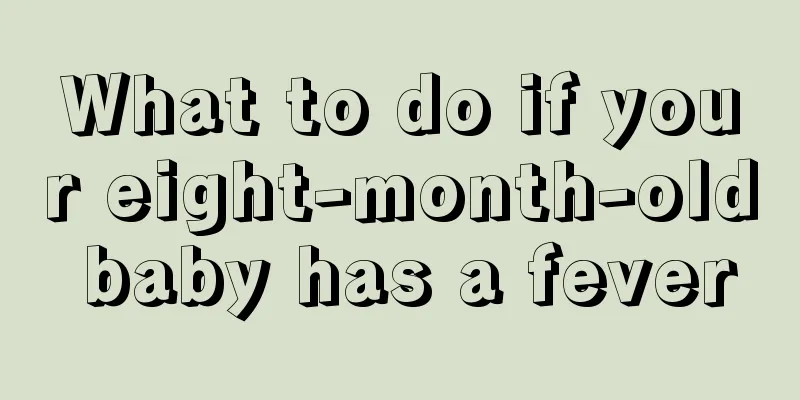
|
Some parents become overly nervous when they see their baby under one year old has a fever, but there is actually no need to panic. It is very common for eight-month-old babies to have fever because their body temperature control system is not yet fully developed. At the same time, fever is also a kind of self-regulation of the baby's immune ability. If your baby has a fever at home but the fever does not reach 38.5 degrees, parents can first try physical cooling methods to reduce the child's fever.
First, measure the child's body temperature. If it is below 38.5, don't be nervous and take physical cooling measures first. If it exceeds 38.5, you need to give the child antipyretics. If the body temperature exceeds 39 degrees, you need to seek medical attention immediately. Reduce the number of clothes. Don’t dress your baby too many clothes after he has a fever, as too many clothes will make it difficult to dissipate heat. Fever-reducing patches. Be sure to keep some at home and put them in the refrigerator. Stick the patches on the child's forehead, chest, and armpits. Try not to let the child scratch after applying them. Wipe with warm water. Prepare a basin of warm water at about 30-40 degrees. Use a soft towel to wipe the child's chest, armpits, inner thighs, etc. for heat dissipation massage. Use your fingertips to gently push the Tianhe water. You can wipe a little cool water on your arms while pushing. The movements should be gentle and quick, and push 100 times. Rub your hands and feet to warm them up. If the child's hands and feet are cold, the heat will not dissipate easily. Try to rub your child's hands and feet to warm them up, and move the heat chamber toward the extremities. If the hands and feet are warm, the heat will dissipate quickly.
1. External factors: Body temperature is affected by the external environment, such as wearing too many clothes when it is hot, drinking too little water, and poor ventilation in the room. 2. Internal factors: illness, cold, tracheitis, sore throat or other diseases. 3. Other factors: cold; ENT inflammation; roseola; vaccination; sepsis; urinary tract infection; encephalitis; meningitis; wearing too many clothes, tooth fever, summer heat; gastroenteritis combined with dehydration. 3. Symptoms of fever in 8-month-old babies 1. Blushing and fever. If you find that your child has a red face, dry lips, sweats, is irritable, has heavy breathing, and breathes hotly from the mouth and nose when feeding, and you touch your child's forehead and back with the back of your hand, and find that his hands and feet are hot, you can judge that he has a fever. 2. Spasm. If a young child has a constitution that makes him or her prone to fever, or a rapid rise in body temperature, a high fever may cause convulsions. 3. Trembling hands and feet, and crying loudly. Even if convulsions do not occur, there is a slight tremor in the hands and feet, and the child will jump up at the slightest touch, and express pain by crying loudly. 4. The baby refuses to drink milk, cries, is listless or drowsy. 5. Body temperature rises and the body becomes noticeably hot.
Try to breastfeed; get immunizations and vaccinations in time; eat and sleep regularly; eat a balanced diet; do not use antibiotics at will. When the infection is not very serious, try not to use antibiotics, but rely on your own resistance to exercise your immune system. |
<<: What to do if your child coughs and has phlegm
>>: Is it normal for an eight-month-old baby to be active?
Recommend
Diet therapy for the prevention and treatment of cerebral palsy in children
Cerebral palsy in children is a disease caused by...
What to do if there are small red spots on the newborn's legs
Women who have just become mothers must have many...
Several misunderstandings about baby supplements---ignorant love equals harm
As a nutritionist and a mother, I certainly pay m...
How to do health exercises for children
Many parents see their children are a little youn...
How long do deciduous teeth last?
For every mother, every child is unique and canno...
The best age for women to have children
In modern society, many female friends always get...
What causes itchy urination in children?
Itchy urination may indicate urinary tract infect...
What to do if your one and a half year old baby has thinning hair
Many parents start to worry when their baby's...
The reason why a four-month-old baby drools a lot
Every parent is great as they take care of their ...
How to remove red birthmarks on baby’s eyelids?
When a baby is just born, a small red birthmark m...
Infants and young children have colds and coughs, beware of complications
Under normal circumstances, people rarely catch a...
Baby sweating at night
Babies are the apple of every parent's eye. A...
How to regulate children’s spleen and stomach?
There are many reasons why babies have weak splee...
Can infants and young children with roseola take a bath?
Most infants and young children will develop rose...
White discharge from nose
The mucus that runs through the nose during a col...
